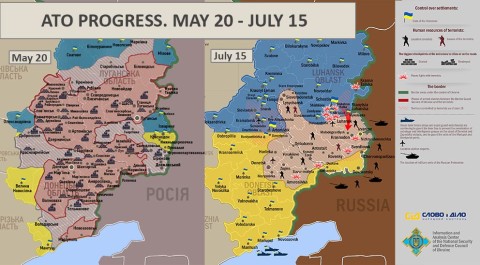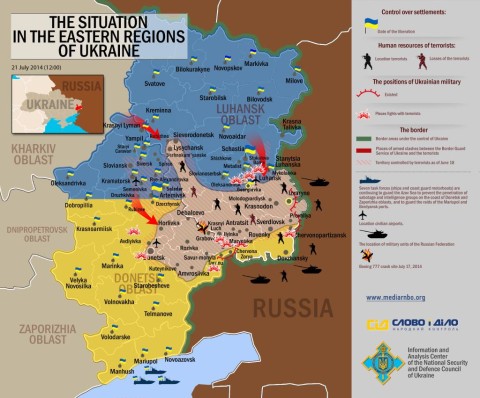In Maclean’s, Martin Patriquin reflects on the disaster for the separatist cause that was the Quebec election:
Sovereignty isn’t dead. It is impossible, sovereignists themselves often say, to kill a dream shared by a rock-ribbed 30 per cent of the population. Rather, Quebec’s sovereignty movement goes through fits and starts, peaks and valleys, a sleeping giant that can wake up and roar at a moment’s notice.
[…]
In this respect, the mortal enemy of the sovereignty movement isn’t the Liberal Party of Quebec, the Trudeau family, the federal government, Quebec’s immigrant population or any of the other central casting nightmares conjured up by the sovereignist movement over the years. No, the real enemy is the march of time.
As such, the sovereignty movement was pushed that much closer to obsolescence with the recent election. This Liberal win, like all Liberal wins past, means no serious talk of referendum, sovereignty or separation for four years at least. Decimated and leaderless, the PQ ranks will likely have to suffer through a wrenching leadership campaign before turning its sights on Philippe Couillard’s Liberals. PQ strategists will have to explain the party’s rudderless, error-prone election campaign that tanked its relative popularity in the space of a month. In the longer term, the PQ MNAs will have to answer for the party’s so-called Quebec values charter, which many feel targeted Quebec’s religious minorities—and in all likelihood hurt the party’s chances of moving beyond its white, francophone base. All of this will take time, which isn’t on the PQ’s side.
It wasn’t supposed to be like this. Buoyed by a jump in the polls and a listless showing by Liberal Leader Couillard, Marois confidently called an election on March 5 with every expectation of getting a majority government. Instead, she (and the province) got a quick and nasty campaign dominated by referendum chatter and the short-term economic tremors it inevitably causes. The mere mention of an election last fall caused Montreal’s real estate market to dip.
Without a doubt, the turning point in the campaign was the press conference to introduce superstar PQ candidate Pierre Karl Péladeau:
The smart political strategist would do the following: put Péladeau on a stage and make him talk strictly about how he transformed Videotron from a Podunk cable company beset by labour troubles into the province’s leading cable and wireless concern. In the vacuum of a month-long election campaign, Péladeau the businessman could easily hide the red-ink-stained legacy of the PQ’s 18 months in power.
Instead, we got Péladeau the Quebec separatist. On a chilly Monday morning three days into the campaign, Péladeau took the stage with Pauline Marois and, after a 13-minute speech vaunting his economic record and the beauty of his riding of St-Jérôme, he uttered 30 words that would overshadow his campaign and that of his newly adopted party. “Finally, I end by telling you that my membership in the Parti Québécois is in line with my most profound and intimate values,” he said in French. “That is to say, make Quebec a country!”
[…]
In the immediate aftermath of Péladeau’s declaration, Marois mused that citizens of a separate Quebec would have their own Quebec passport; people and goods would flow freely over the open and undefended borders with Canada. Quebec would use the Canadian dollar, and lobby for a seat with the Bank of Canada. Her strategists quietly put an end to Marois’s flights of fancy within 48 hours, but the damage was already done. And it was irreversible.
In Quebec City, Péladeau’s candidacy should have hearkened a return of the PQ in what has been a bastion for the right-of-centre Action Démocratique du Quebec party and its successor, the CAQ, led by former PQ minister François Legault. Yet Péladeau seemingly did himself in with those 30 words in this surprisingly conservative and federalist region and beyond. “I’m so disappointed in the guy it’s ridiculous,” says Mario Roy, an insurance broker and sometimes radio DJ, who in 2010 worked on a campaign with Péladeau to bring an NHL team to Quebec City. “You want to go into politics to fix public finances and put things in order? Fine. But to pump your fist and say you want a country? Tabarnac.”





